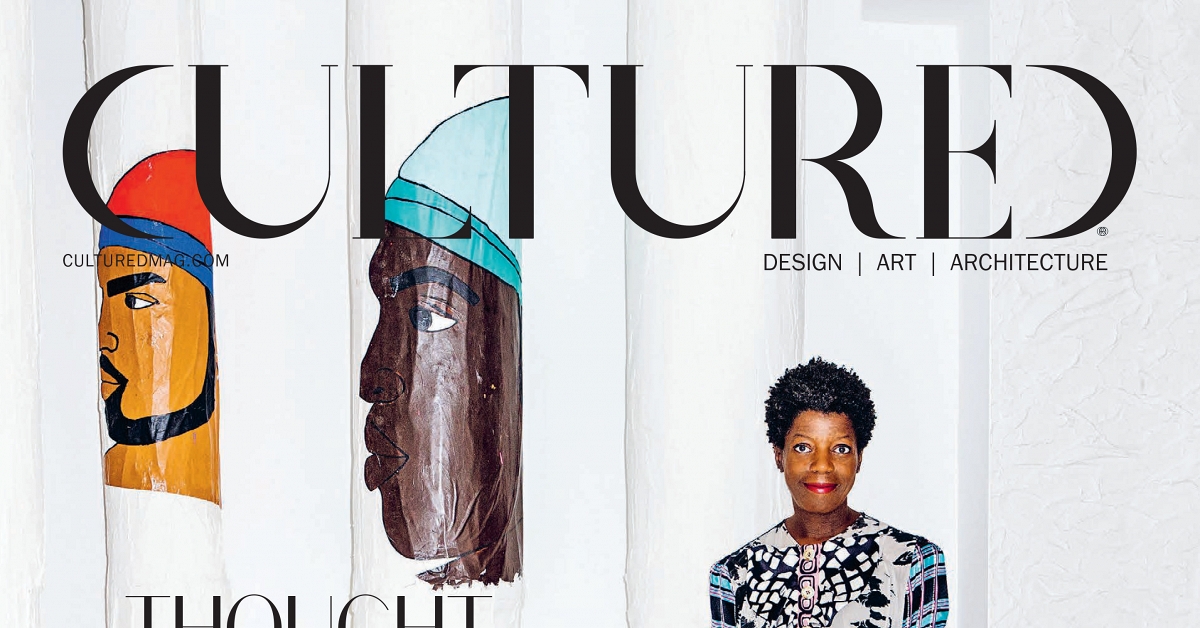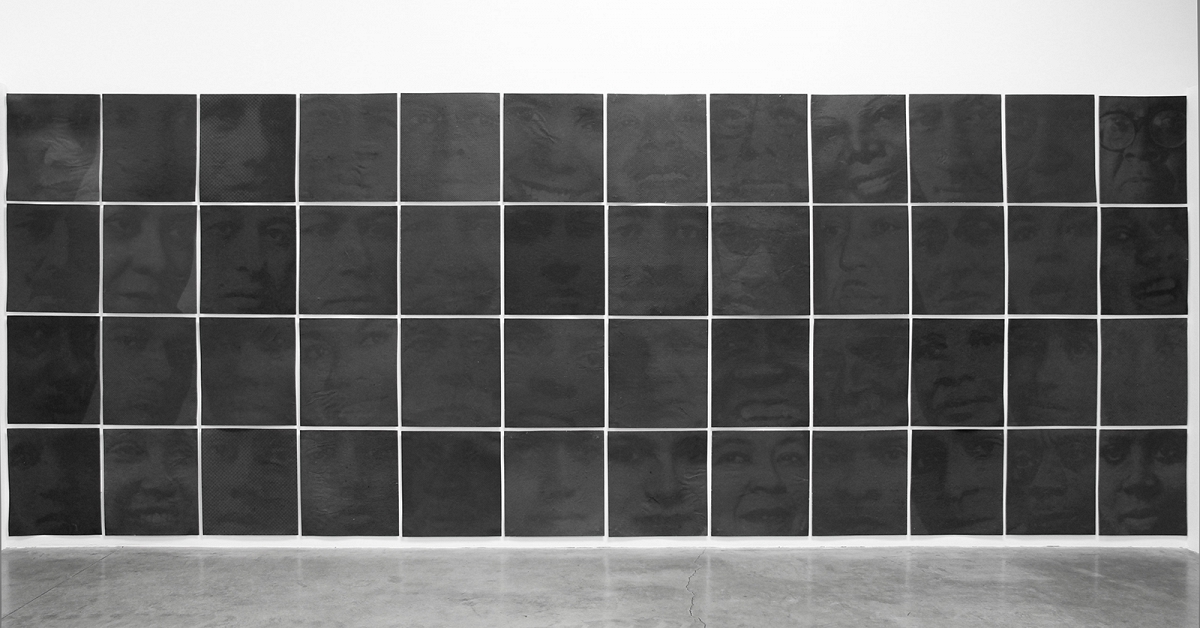Brittany Nelson Puts a Sci-Fi Spin on Closeted Gay Life
Art in America / Aug 19, 2019 / by Jeremy Lybarger / Go to Original
“I have a terrible weakness. For many years I kept falling in love with beautiful, gifted, doomed and unscrewable girls.” These are lines from a handwritten letter by Alice Sheldon (1915–1987), who wrote science fiction under the pseudonym James Tiptree, Jr., from the late 1960s until the end of her life. Sheldon hid her sexuality and her true identity for many years, although her stories contained fantasies of unconventional sex and gender that distinguished them from the work of other New Wave writers of the 1960s and ’70s.
Sheldon was the inspiration for Brittany Nelson’s exhibition “10,000 Light Years From Home,” which took its title from the writer’s debut story collection. The work on view fell into two categories: one mining Sheldon’s writing for source material, and the other appropriating images from the Mars Opportunity Rover. (NASA sent two rovers, Spirit and Opportunity, to Mars in 2004. They were supposed to have a life span of ninety days, but Spirit survived until 2011, and Opportunity until 2018. The latter continued to document the desolate Martian landscape.) Together, the two types of work offered a poignant meditation on love, isolation, and queer desire.
In Sheldon’s short story “And I Awoke and Found Me Here on the Cold Hill’s Side,” a spaceport engineer describes how his sexual obsession with aliens—which he likens to a disease or a pathology—has ruined his life. For a 2018 series of six black-and-white photographic prints featured in the exhibition, Nelson removed the pages of the story from a copy of the aforementioned collection, laid them on sheets of photographic paper, and shined a flashlight at them, treating them as negatives. The text on the pages’ two sides bleeds together in the resultant prints, rendering the words illegible and obscuring the illicit confession they offer.
Another 2018 series on view, “Sol 4,999,” consists of small halochrome-toned prints documenting the sun as it rose for the five thousandth time during Opportunity’s mission. The metallic images are subtle and deliberately repetitive, mimicking the sense of time standing still that one might have in outer space, and dramatizing just how alone Opportunity was. Nelson primes us to make the connection to Sheldon, who married twice despite her attraction to women. The objects of her desire must have seemed as distant as the sun was to Opportunity.
Evidence of that is provided in the show’s second room. Red lights suggesting lust or emergency illuminate six wall-mounted holograms on glass that depict pages of letters—including the aforementioned one—in which Sheldon discusses women she secretly coveted. To read Sheldon’s handwriting, you must face the holograms head-on and lean in close to the reflective surfaces, an intimate posture that befits these letters’ expressions of unconsummated desire.
The show’s standout pieces were three bromoils based on photos of the Martian landscape taken by Opportunity. Bromoil is an early twentieth-century photographic printmaking technique in which the silver images are bleached out of black-and-white prints and replaced with lithographic ink. Nelson’s bromoils, at around four by six feet, are dramatically scaled. (According to the gallery, they are the largest such prints ever made.) The stark, grainy images capture vistas of profound remoteness and solitude, of barren terrain interrupted occasionally by Opportunity’s lone tracks. Thick borders of ink smudged with Nelson’s fingerprints surround the images. This personal touch and the pictures’ sense of estrangement produce an affective combination, one that echoes the juxtaposition of technology and human intervention inherent to the bromoil medium.
For all of its imagery concerning space travel, Nelson’s show felt hermetic and sometimes claustrophobic. There was severe beauty in the work, but also airlessness, and a kind of formal solemnity. This would be detrimental in most other shows; here, it simulated what it feels like to be closeted, or to live with unrequited desires: lonely, confusing, alien.
Sheldon was the inspiration for Brittany Nelson’s exhibition “10,000 Light Years From Home,” which took its title from the writer’s debut story collection. The work on view fell into two categories: one mining Sheldon’s writing for source material, and the other appropriating images from the Mars Opportunity Rover. (NASA sent two rovers, Spirit and Opportunity, to Mars in 2004. They were supposed to have a life span of ninety days, but Spirit survived until 2011, and Opportunity until 2018. The latter continued to document the desolate Martian landscape.) Together, the two types of work offered a poignant meditation on love, isolation, and queer desire.
In Sheldon’s short story “And I Awoke and Found Me Here on the Cold Hill’s Side,” a spaceport engineer describes how his sexual obsession with aliens—which he likens to a disease or a pathology—has ruined his life. For a 2018 series of six black-and-white photographic prints featured in the exhibition, Nelson removed the pages of the story from a copy of the aforementioned collection, laid them on sheets of photographic paper, and shined a flashlight at them, treating them as negatives. The text on the pages’ two sides bleeds together in the resultant prints, rendering the words illegible and obscuring the illicit confession they offer.
Another 2018 series on view, “Sol 4,999,” consists of small halochrome-toned prints documenting the sun as it rose for the five thousandth time during Opportunity’s mission. The metallic images are subtle and deliberately repetitive, mimicking the sense of time standing still that one might have in outer space, and dramatizing just how alone Opportunity was. Nelson primes us to make the connection to Sheldon, who married twice despite her attraction to women. The objects of her desire must have seemed as distant as the sun was to Opportunity.
Evidence of that is provided in the show’s second room. Red lights suggesting lust or emergency illuminate six wall-mounted holograms on glass that depict pages of letters—including the aforementioned one—in which Sheldon discusses women she secretly coveted. To read Sheldon’s handwriting, you must face the holograms head-on and lean in close to the reflective surfaces, an intimate posture that befits these letters’ expressions of unconsummated desire.
The show’s standout pieces were three bromoils based on photos of the Martian landscape taken by Opportunity. Bromoil is an early twentieth-century photographic printmaking technique in which the silver images are bleached out of black-and-white prints and replaced with lithographic ink. Nelson’s bromoils, at around four by six feet, are dramatically scaled. (According to the gallery, they are the largest such prints ever made.) The stark, grainy images capture vistas of profound remoteness and solitude, of barren terrain interrupted occasionally by Opportunity’s lone tracks. Thick borders of ink smudged with Nelson’s fingerprints surround the images. This personal touch and the pictures’ sense of estrangement produce an affective combination, one that echoes the juxtaposition of technology and human intervention inherent to the bromoil medium.
For all of its imagery concerning space travel, Nelson’s show felt hermetic and sometimes claustrophobic. There was severe beauty in the work, but also airlessness, and a kind of formal solemnity. This would be detrimental in most other shows; here, it simulated what it feels like to be closeted, or to live with unrequited desires: lonely, confusing, alien.






